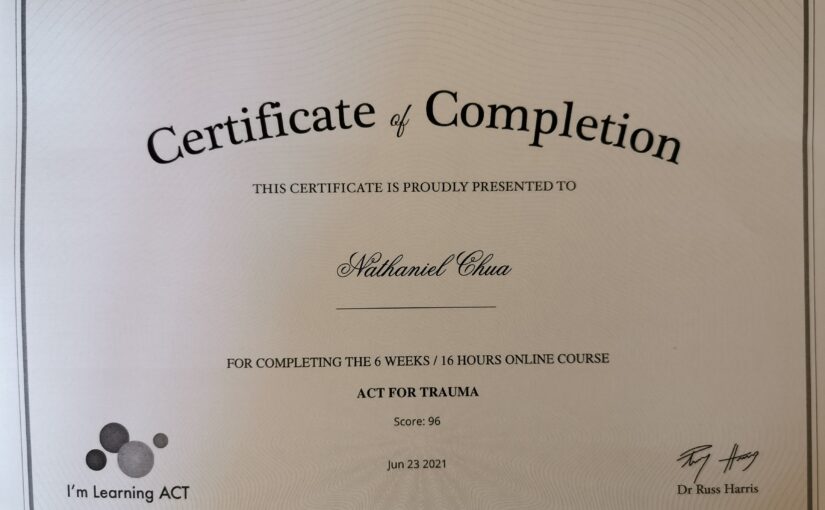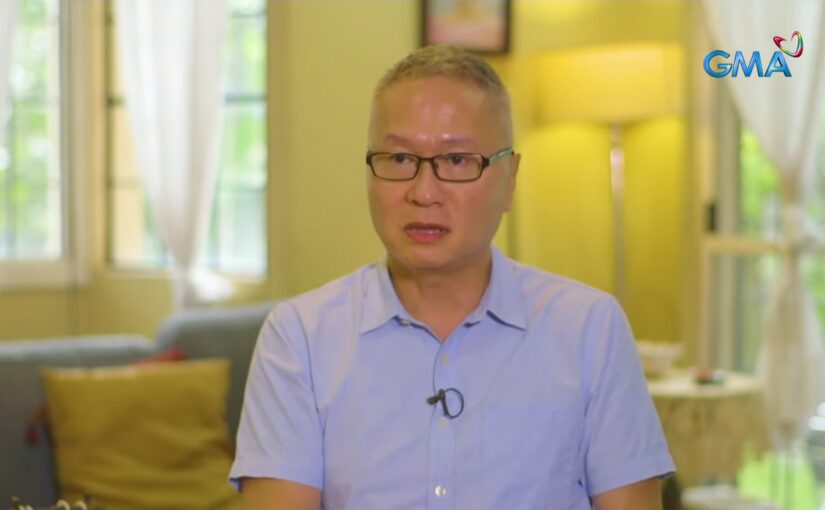Tag: Trauma Counseling
How to be successful in conflict, Video!
How Anxiety Can Limit Your Life Choices
by Nathan Chua
Anxiety is probably one of the most common complaints that people come to therapy for, which makes me wonder why this has not been a subject that I discuss more often. I think a lot of my own anger issues stem from a deeply held anxiety about an assortment of issues in life. I grew up in a home full of unpredictability and the sight of anger and acts of intimidation familiar. It is therefore quite easy for me to feel anxious about any kind of turn of events that don’t go my way. I became very strict with rules that I felt were needed to keep things in check even if much of these were out of my control.
I recently came up with a metaphor that I hope people who suffer from anxiety due to a past traumatic experience, can benefit from. This provides a simple imagery of what goes on in us when we become overly controlled by our anxiety in situations that could mean a lot to us if only we could “overcome” our difficult feelings. Unfortunately, that is most of what we have learned from mainstream psychology for many decades now. We should be able to bring anxiety down to certain levels in order to function and live meaningful and purposeful lives. I will have to leave this discussion for another time.
The subject I wish to talk about is how we can understand what we do when we allow our anxiety to dictate our lives. Sort of a step backwards to see the unworkability of the things we do when we experience anxiety. Let’s say one day a person gets involved in an accident caused by a yellow car. As we have minds that are capable of remembering much more than other animals do, that person’s mind will remind him of the terrors caused by yellow cars in his life. In fact, even the word yellow can bring back all the sordid details of the accident.
Now let’s imagine that this person went for a pleasure trip someday where he enjoyed sightseeing so much that he forgot that there will be no options to get back to his hotel anymore other than riding a yellow cab. Unfortunately, he or she or they would have to walk to the hotel in the middle of the night where there is less certainty that it will be safe. Would the person summon the courage to take a yellow cab then? If safety and enjoying the vacation is important enough, one can be forced to ride the cab and by forced I mean, by the person’s own free will, and how much more workable taking a yellow cab would be.
Now here’s how this story can relate to our own histories of past traumas. In Acceptance and Commitment Therapy or ACT, not being able to realize the different contexts in which real danger should be avoided is at the heart of what is called psychological rigidity or what I prefer to call behavioral rigidity or inflexibility.
One thing that happens if we start following rules that our minds offer us to protect us in situations where there is an actual danger or threat, we begin to lose sight of other options available. We hold on to limited patterns of behaving in dealing with the myriad of situations that happen as we go through different life stages or even daily challenges.
If you are like many of us who have lived with imperfect parents or caretakers, there will be situations that will cause us to feel anxious. But some of these situations can call for our willingness to open up to these difficult feelings in order to enrich our lives. Noticing how our minds overgeneralize with rules is the key to breaking out of the limits our minds make. Opening up to our past histories and noticing them as they are is key to what is possible.
If we stay and see behind our difficult memories, there may be something that we can learn which is important to us. In my case, I hated my own anger because I cared about being kind in the presence of that anger. If you have been bullied or rejected, that hurts because you care about not being bullied or about being accepted. There’s much to learn from what is painful. Don’t run away. Stay and watch how much your pain says about you and the beauty of all that you hold dear and care about. In other words, don’t run away from your own humanity. As it is often said in ACT, open up to your painful thoughts and feelings, and see what gifts lay behind.
Watch this on YouTube!
ACT for Trauma Certificate of Completion
Having been trained in psychodynamic therapy, helping trauma clients from a behavioral lens was unimaginable for me as a graduate student. With the use of the inner child, memory and exposure work, it turns out that the two approaches share much in common. From an ACT or behavioral, and scientific perspective however, I have learned the rationale behind such practices, and how our nervous system works to produce the kind of ineffective responses people have towards traumatic experiences. It was difficult having done this together with the ACT for Adolescents course, but it was well worth the effort. I consider it a privilege to be around in an era where people like Dr. Russ Harris, a best-selling author and renowned ACT therapist, are able to share their knowledge and expertise from thousands of miles away! I eagerly look forward to more courses in ACT, Relational Frame Theory, and Functional Contextualism.
Do you need counseling?
Do you need counseling for depression, anxiety, trauma, relationship (marriage, family) problems, insomnia, anger management problems, infidelity, teen parenting issues, grief processing, addiction, procrastination, work performance, and even weight issues?
We are here to provide you with evidence-based approaches that are backed by reliable and valid scientific research!
We provide both in person and online video counseling for your convenience.
Please text (preferred) or call:
Mobile Number: +63 917 886 5433 (LIFE)
Available also on Viber and WhatsApp!
(The best option is to message this number through Viber or WhatsApp and we will gladly call you back or reply!)
You can also call our booking hotline!
Booking Hotline: +632 8396 6007
The booking hotline is available 24/7!
Email:
Connect with us through Facebook, follow us through Spotify and YouTube.
Our offices are located in Quezon City, Metro Manila, Philippines.
CMS Clinic
2nd Floor Back to the Bible Building
135 West Avenue, Quezon City, Metro Manila, Philippines
and
M Place South Triangle
8004 Mother Ignacia Avenue, Quezon City, Metro Manila, Philippines
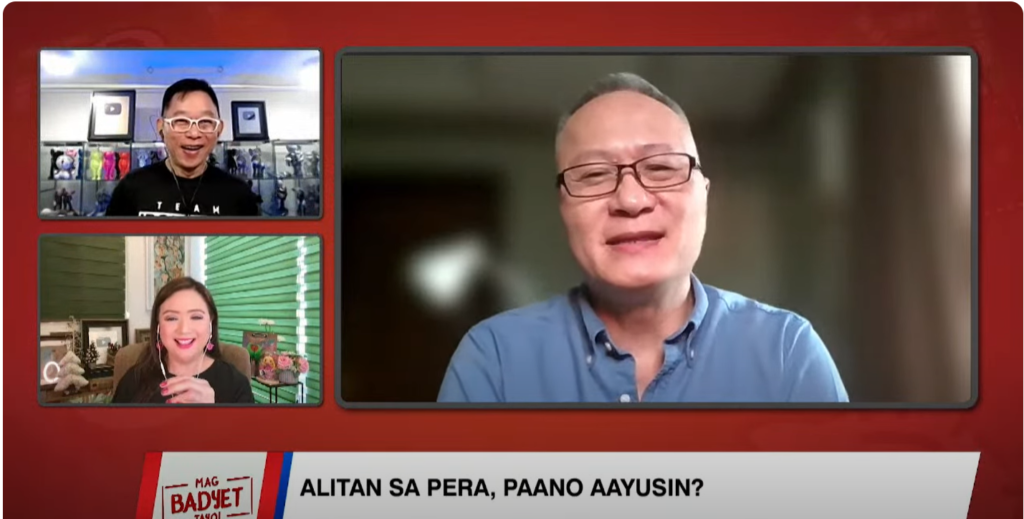
Nathaniel Chua is a member of an international organization called the Association for Contextual Behavioral Science (ACBS). He became chair of the Diversity, Equity, and Inclusion Special Interest Group (DEI-SIG) of ACBS; the first Non-North American to do so.

Nathaniel Chua has a Master’s Degree in Counseling and continues to learn more of the most cutting-edge approaches to working with the human condition.
Below is Nathaniel Chua’s first virtual talk held on November 17, 2023 in front of an international group of therapists from Low or Middle Income Countries (LMIC). He is the first from the Philippines to do this:
What is One Life Only Counseling about?
- You can be assured that your information with be kept completely confidential.
- You will be respected regardless of your religion, gender preference, ethnicity, economic status, and even your personal lifestyle and values. We are LGBTQIA+ friendly!
- Your counselor will not impose their values and beliefs on you.
- We use a scientific model of counseling that has precision, depth, and scope. Below are bullet points to let you understand better what we mean by this:
- By precision we mean that our approach to counseling tells you how these mechanisms of change work. It is not enough to say that a sense of self-awareness is what creates changes in people’s behavior. Our approach tells us how self-awareness works as one step within a set of processes that can lead to lasting change.
- Depth means the approach we use does not conflict with other theories and models of therapy. In fact, many other approaches can be used as forms of treatment towards greater psychological flexibility. Our approach for instance does not conflict with findings in the area of attachment theory, gestalt therapy, psychodynamic therapy to just raise a few examples. It cuts across other levels of analyses.
- Finally, by scope we mean that our approach comes from the discovery of the smallest set of processes that cuts across multiple mental health concerns from anxiety and depression to personality disorders to psychosis, etc. It is a transdiagnostic approach that seeks to understand what many of the symptoms or syndromes come down to, so these processes can be targeted to address many, if not all of the disorders listed in different diagnostic systems.
- We are also probably the only counseling service in the Philippines that follows a certain philosophy of science with certain a priori assumptions about human nature. With this in mind, we offer a holistic consistent approach to life’s challenges that is a-ontological, monistic, and pragmatic.
- Furthermore, ineffective behaviors are addressed by their classes and functions, therefore making our model of therapy parsimonious and much easier to apply to daily living. Most of our clients are empowered to use the skills they learn in therapy to apply to a multitude of challenging situations without having to rush to a therapist to address specific concerns. If you remember Einstein, everything can be explained by one simple equation, E = mc squared! In other words, we do our best to be ACT-Consistent or as some other experts would call it, we practice, ACT Fidelity!
The approach we use is also one that is endorsed by the World Health Organization as an effective psychological tool for coping with any kind of life crises! It can be described as a kind of psychological vaccine that has been found to be effective in improving and promoting mental resilience in the face of many, if not all kinds of life challenges.
Here’s a paraphrase from Dr. Steven C. Hayes in my interview with him on April 5th, 2022:
“Here’s what the World Health Organization, the best public health and scientific group in the world says about this protocol, this extensively tested protocol is helpful for anyone who is stressed, for any reason, in any circumstance.”
Since 2019, we have been very excited to offer this type of a radically different approach to therapy that is not just about relieving symptoms, but also about helping people towards creating lives imbued with meaning and purpose.
Here’s a video about what makes One Life Only Counseling Services different:
You can read the written version of this video through this link: https://www.onelifeonly.net/about/what-makes-one-life-only-counseling-services-different/
Here is a recent interview for an article on Philstar Life featuring Nathaniel Chua and a legal practitioner about marital sexual consent:
https://philstarlife.com/news-and-views/928796-consent-rape-marriage-explainer
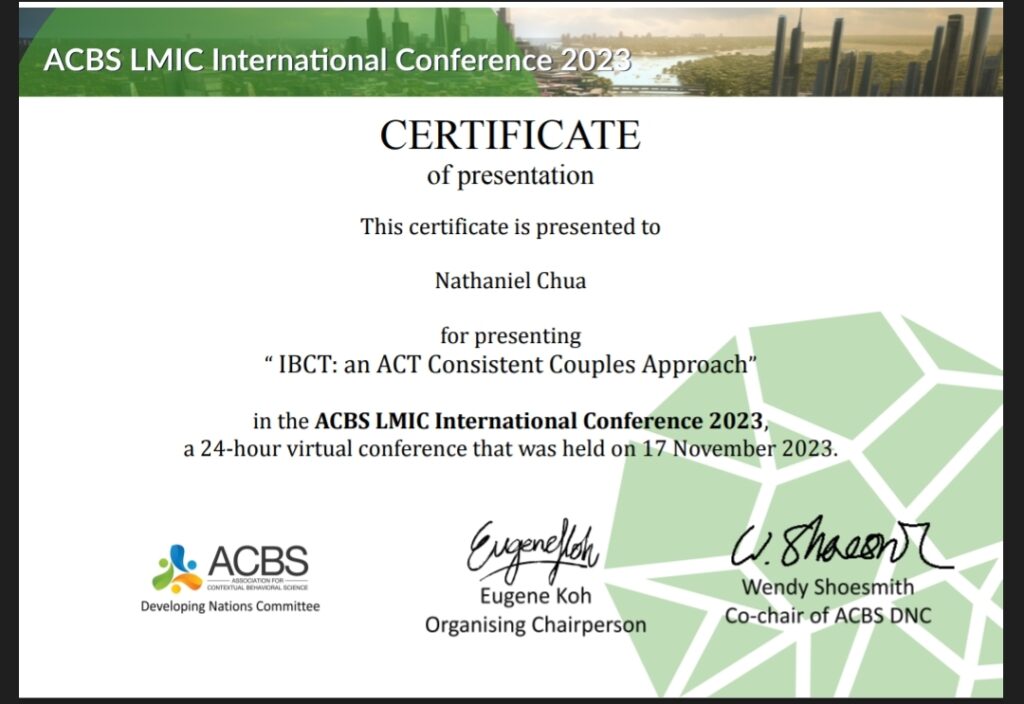

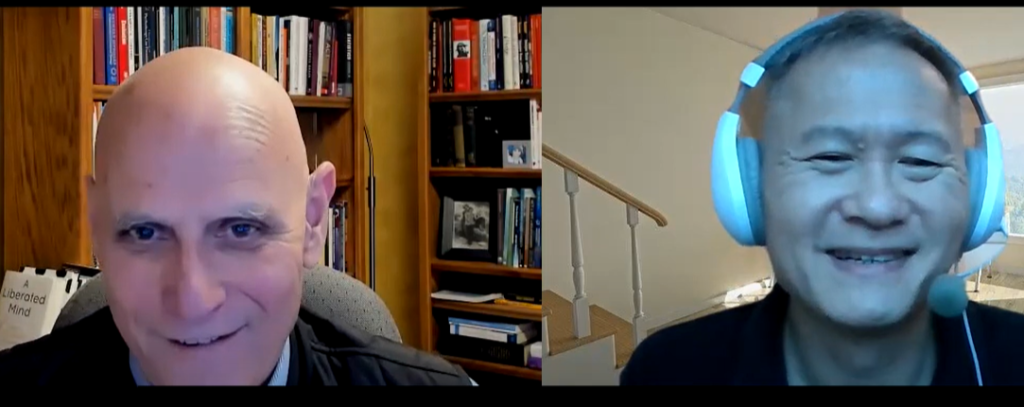
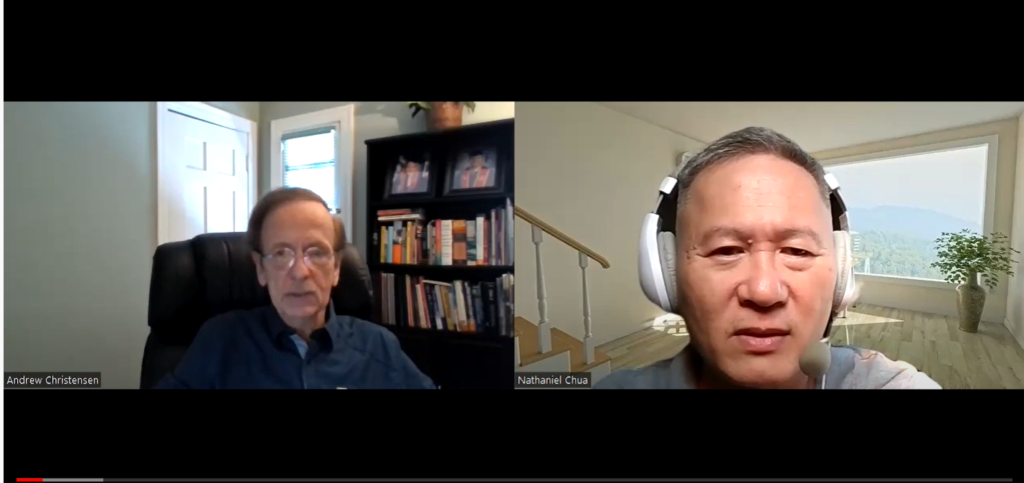
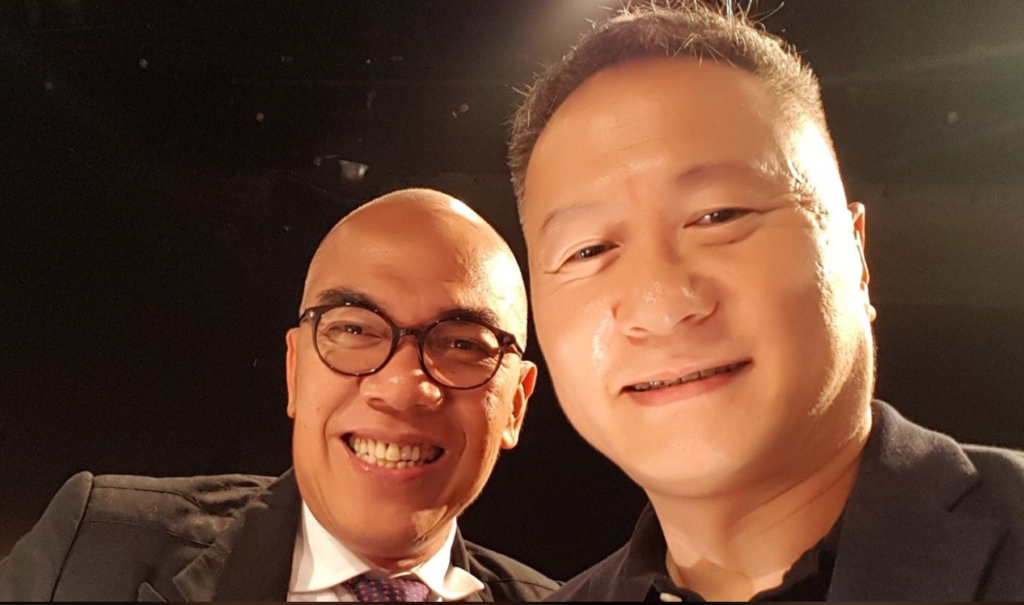

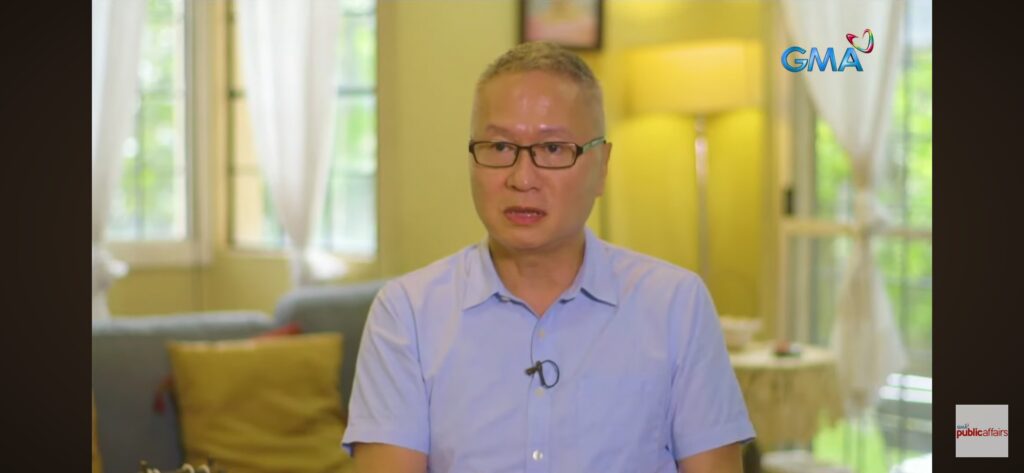
Here a video of Nathan Chua’s appearance on a “Dapat Alam Mo” Episode:
Here’s a solo interview of Nathan Chua with an ACT Matrix Expert and Counselor from the United States, Jacob Martinez:
Interviews with the experts:
Here are two interviews with the two experts that have had a huge impact on my work in recent years. They are with Dr. Steven Hayes and Dr. Andrew Christensen. Here are the videos:
What makes our difficult emotions more difficult?
by Nathan Chua
All of us go through this. We feel some anxiety, sadness, anger, and so on and seem to dig ourselves deeper into the abyss of unpleasant emotions.
There is a reason why we see ancient traditions of meditation where wise people sit for periods of time. Part of the exercise is to be able to stay with difficult thoughts and the feelings that come along as they sit. In fact the type of meditation that is referred to here is called just sitting.
Contrary to the logic that we so often use so well with problems that are external to us, our struggle lies not in our difficult emotions, but with how we relate to them. As kids, we were trained by our parents or other guardians to show mostly feelings that are labeled as positive. These are rules we learn early when we are first taught to listen to and recognize words that refer to positive or negative consequences to our behaviors. Mom and dad don’t like it when we are sad and crying because such feelings attached to the behavior get in the way of a quiet night watching a movie or a party with friends. Your crying loudly in church or a friendly gathering doesn’t allow for the adults in the room to focus on what is going on.
As a result, we learn to judge our own feelings as bad and in turn judge ourselves as bad too for having such unwanted emotions.
Dr. Russ Harris gives us a list of how our mind judges our feelings and make them worse:
- “Why am I feeling like this?”
- “What have I done to deserve this?”
- “Why am I like this?”
- “I can’t handle this!”
- “I shouldn’t feel like this.”
- “I wish I didn’t feel like this!”
The key here is to be able to describe our feelings instead of evaluating them. Evaluating our feelings means we begin a struggle with them and think that the only way forward to doing that important project is to get rid of such feelings. Let me be okay first before I go on with my day and my plans. I will only go for that promotion or approach that person I want to date when I feel confident enough.
Unfortunately, these judgments against our own feelings become invisible barriers that stand in the way of us pursuing that very thing that would make us feel like we are living in accordance with what we aspire to be. We go from a natural pain that life gives us when we end up in tough situations, to a manufactured pain or a pain that we create for ourselves wherein we become entangled in a war inside our minds…while precious time ticks away. Eventually, that promotion goes to someone else at work or that date gets involved with someone else.
Describing our painful emotions on the other hand, allows us to approach difficult feelings with curiosity. As we do so we are more able to allow such feelings to hang around for a while and then come and go as they please. Note though that we have no control over how long or if these unpleasant feelings will stay or not. The more we try to control them and want to get rid of them, the more they linger and make us end up being at war with our own thoughts and feelings.
Just remember, we are not our histories, they are just a part of us. Hating our own past and wishing they were different means being at war with something we can learn from. Our histories can either enrich our lives or be our worst enemies. We just have to choose.
One Life Only Counseling Services provides an evidence-based, transdiagnostic approach to counseling with proven results in addressing a variety of mental health concerns. We provide both in person and online video counseling as well as soft skills training workshops for corporate and non-profit organizations.


